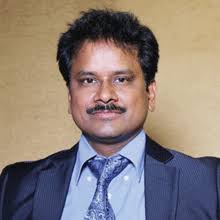National Doctors Day

How can Ayurveda enhance medical treatment for end-stage diseases?
Dr Ravishankar Polisetty
According to a report by the World Health Organisation (WHO) on Palliative Care, every year an estimated 56.8 million people, including 25.7 million in the end stage of life, need palliative care globally. However, only 14 per cent of them currently receive it. The report also highlights the need for adequate national policies, programmes, resources and training for health professionals in palliative care to improve the situation.
Meanwhile, in India, despite efforts by the government and non-governmental organisations to raise treatment standards, less than one per cent of the population has access to pain relief and palliative care. India’s poor ranking on the Quality of Death Index reflects this reality and reveals the country’s struggle to provide adequate end-stage support for patients facing terminal illnesses. The index primarily evaluates factors such as the availability of palliative care services, healthcare infrastructure and cultural attitudes towards death and dying. This situation also underscores the need for a more integrated approach to palliative care within the broader healthcare framework.
As the country embraces modern healthcare advancements, there is a growing recognition of the importance of integrating traditional Ayurvedic principles into end-of-life care. Many scientific studies support the fact that incorporating Ayurvedic principles into palliative care facilities can enrich patient experiences. Aligning with India’s rich cultural heritage, Ayurveda can offer complementary therapeutic options complementing modern medical practices, resulting in better care for those facing end-stage diseases. This treatment method goes beyond home remedies and emphasises a holistic approach to balancing Vata, Pitta, and Kapha – the basic energies present in the human body.
Allopathy is still a vital emergency option for patients, especially towards the end of life. However, in some cases, allopathic treatments prove inadequate. Here comes the relevance of Poly Scientific Ayurveda (PSA), which blends traditional Ayurvedic practices with modern technology. This combination helps in prioritising quality of life and preserving dignity during the final days. PSA focuses on comprehensive support for end-stage patients, managing symptoms and addressing emotional and spiritual needs, thereby ensuring comfort and peace in their journey towards the end of life.
At the heart of Ayurveda lies the concept of Panchamahabhuta or ‘the five elements’ –Prithvi (earth), Vayu (air), Agni (fire), Jal (water) and Aakash (aether). Traditional wisdom states that these elements constitute the fundamental building blocks of existence. According to Ayurvedic philosophy, an imbalance in any of these elements can lead to disease while harmony or a perfect balance between them promotes health. This framework offers a nuanced approach that addresses emotional, psychological and spiritual dimensions, in addition to physical symptoms which can effectively support end-of-life care management. However, the trained doctors alone can implement this support system.
Modern scientific research and data collection also provide ample evidence that supports the efficacy and benefits of the treatment options and outcomes from the integration of Ayurveda with modern medicine. The tangible results of this approach show significant improvements in the quality of life for over 95 per cent of end-stage patients, including those with heart disease, diabetes, kidney failure, skin disorders and cancer. Further, this methodology also shows promising five-year symptom-free survival rates and drug-free survival rates exceeding five years in 63 per cent of patients.
The growing realisation among various stakeholders in the health sector is that current medical approaches with focus only on allopathic solution alone may not be adequate to manage complex medical issues and ensure sufficient geriatric care. This has resulted in increased interest in alternatives like PSA. The Government of India’s plan to establish 1.5 lakh Health and Wellness Centres nationwide under the Ayushman Bharat Yojana with 12,500 of them dedicated to Ayush Wellness alone also exemplifies the interest of our policymakers in promoting more integrative medicine systems.
Another key aspect is that Ayurveda does not depend entirely on frequent medicinal intake to treat symptoms. Instead, its alternative approach encourages individual lifestyle changes such as yoga, dietary plans and natural remedies tailored to each person’s unique constitution and health conditions. It focuses on preventive care and addressing underlying causes of diseases, thereby promoting sustainable health and harmony over time.
To sum up, the integration of Ayurveda into our healthcare system has the potential to achieve healthcare goals by addressing diseases through natural methods rather than merely managing symptoms. This approach can be particularly effective for those with end-stage diseases as it does not replace active treatment but instead focuses on alleviating the suffering caused by the disease itself, treatment side effects and emotional challenges. Moreover, it aims to improve patient comfort and reduce family suffering.
(The author is a former cardiac surgeon turned translational Ayurvedic researcher. He has pioneered Poly Scientific Ayurveda, combining Ayurveda and biotechnology)






